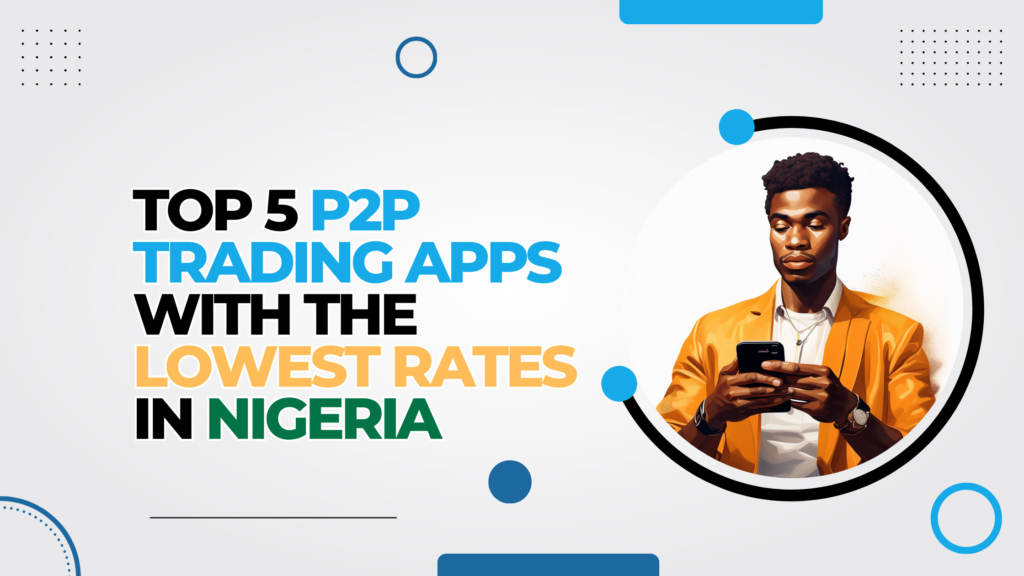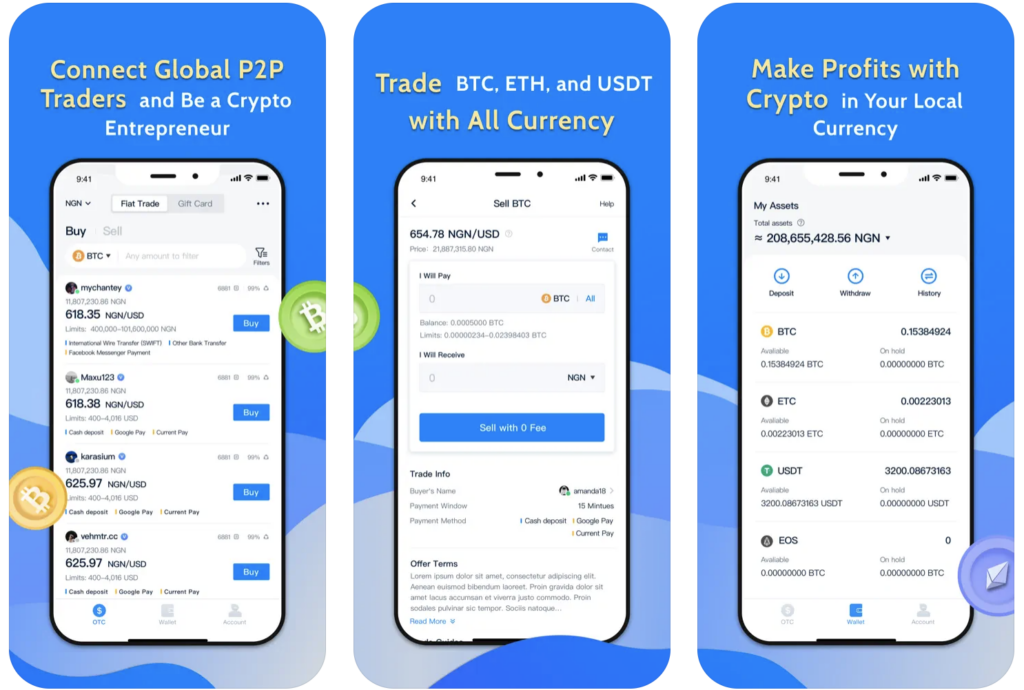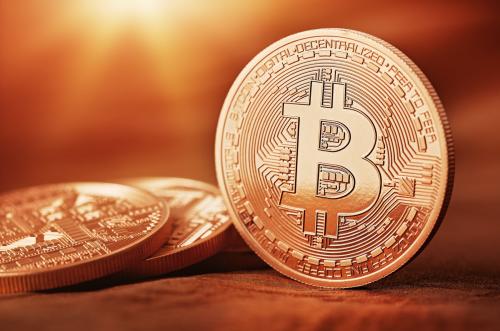Top 5 P2P Trading Apps with The Lowest Rates in Nigeria (2024)

Cryptocurrency is the talk of the town in Nigeria these days. As the country’s economy continues to diversify, more and more people are looking for ways to get involved in the crypto space. One of the hottest trends right now is Peer-to-Peer (P2P) trading. But with so many apps out there, how do you know which ones are the best? Don’t worry, I’ve got you covered. In this article, we’ll dive deep into the Top 5 P2P Trading Apps in Nigeria and everything you need to know about P2P Crypto Trading. By the end of this read, you’ll be ready to dive into the crypto world like a pro.
What is P2P Crypto Trading?
Imagine buying and selling crypto directly with another person, just like trading football cards with your mates at school. That’s the essence of P2P (peer-to-peer) crypto trading. Instead of relying on a central exchange, you connect with other individuals to buy or sell crypto using your preferred payment methods.
How Does P2P Crypto Trading Work?
P2P platforms act as marketplaces, connecting buyers and sellers. You browse listings specifying the type of crypto, amount, and desired payment method (like Naira for us Nigerians). Once you find a suitable match, the platform acts as an escrow service, holding the crypto securely until you complete the payment. After confirming the payment, the platform releases the crypto to your wallet.
Benefits of P2P Crypto Trading
P2P trading offers several advantages:
- Lower Fees: No middleman means fewer fees.
- Privacy: Direct transactions keep your financial details private.
- Accessibility: Easy to use, even for beginners.
Potential Risks in P2P Trading
Like every market, P2P trading has its risks:
- Scams: Always check the reputation of the person you’re trading with.
- Price Volatility: Crypto prices can change rapidly.
- Legal Issues: Ensure you’re complying with local laws.
Why is P2P Crypto Trading Popular in Nigeria?
Nigeria is buzzing with crypto enthusiasts for several reasons:
- Economic Instability: With the Naira fluctuating, people see crypto as a safer store of value.
- Youth Population: Young Nigerians are tech-savvy and open to new financial technologies.
- Financial Inclusion: Many Nigerians are unbanked, and P2P offers them a way to participate in the global economy.
Top 5 P2P Trading Apps with The Lowest Rates in Nigeria in Nigeria: Weighing the Pros and Cons
Nigeria’s thriving crypto scene boasts several P2P platforms vying for your attention. But how do you choose the right one? Let’s break down the top 5 contenders, highlighting their strengths and weaknesses to help you make an informed decision.
1. Paxful: A Global Marketplace with Options
- Pros: Paxful is a veteran player in the P2P game, offering a vast global user base and a wide variety of payment methods. This makes it easier to find a suitable trading partner, especially for those seeking less common payment options. Strong security features like two-factor authentication and escrow services add peace of mind.
- Cons: Paxful’s interface can be a bit overwhelming for beginners, and transaction fees can vary depending on the chosen seller. Additionally, the platform might have a smaller pool of Nigerian users compared to some competitors.
2. Binance: A Popular Choice (Limited in Nigeria)
- Pros: Binance is a globally recognized cryptocurrency exchange, and its P2P platform offers the security and reputation associated with the brand. Users can leverage Binance’s extensive liquidity and competitive rates for various cryptocurrencies.
- Cons: Due to current regulations, Binance P2P functionality is currently limited in Nigeria. Users might face restricted access to certain features or trading pairs. It’s important to stay updated on any regulatory changes that might affect Binance’s P2P services in Nigeria.
3. CoinCola: A Nigerian-Friendly Platform with a Focus on Security
- Pros: CoinCola tailors its services to the Nigerian market, offering a user-friendly interface and a wide range of payment methods that cater to local preferences, including Naira transfers and popular mobile wallets. CoinCola prioritizes security with features like multi-signature wallets and advanced KYC verification, fostering a safe trading environment.
- Cons: Compared to some global giants, CoinCola might have a smaller overall user base. However, its focus on the Nigerian market can be a major advantage for users seeking a platform familiar with local needs and regulations.
4. Bybit: Rising Star with a Focus on Derivatives
- Pros: Bybit is a rising star in the crypto exchange space, known for its user-friendly interface and focus on derivatives trading. While Bybit offers P2P functionality, it’s a relatively new feature compared to some established platforms.
- Cons: Bybit’s P2P platform might have a smaller user base compared to more mature players. Additionally, Bybit’s focus on derivatives might not be ideal for users solely interested in P2P spot trading.
5. Kucoin: Diverse Crypto Selection with P2P Option
- Pros: Kucoin is a popular exchange offering a vast selection of cryptocurrencies, including some lesser-known tokens. This can be appealing for users looking to trade beyond the usual Bitcoin and Ethereum. Kucoin also integrates P2P functionality for those seeking a more direct trading experience.
- Cons: Kucoin’s P2P platform might not be as widely used as some dedicated P2P marketplaces in Nigeria. Additionally, the verification process on Kucoin can be more stringent compared to some competitors.
Remember, the “best” P2P platform depends on your individual needs and priorities. Consider factors like security features, supported payment methods, user base, and available cryptocurrencies when making your choice. Don’t hesitate to explore different platforms and compare features before diving into the exciting world of P2P crypto trading in Nigeria!
Why Choose CoinCola for P2P Crypto Trading in Nigeria?
While all the platforms mentioned offer P2P trading, CoinCola takes it a step further with features specifically designed for a smooth and secure Nigerian crypto experience:
- Unbeatable Security Features: CoinCola prioritizes user safety with features like multi-signature wallets, two-factor authentication, and advanced KYC (Know Your Customer) verification. You can trade with peace of mind knowing your funds are protected.
- Wide Variety of Payment Methods (Include Naira): Whether you prefer bank transfers, mobile wallets like Paga or Paytm, or even cash deposits, CoinCola offers a vast array of payment options to suit your needs. This is especially important for Nigerians who might not have access to international credit cards.
- Competitive Rates and Low Fees: No worries about fees at CoinCola! You can browse existing offers to buy or sell Bitcoin and USDT for free, zip, zero. Feeling like a seller? Post your own offer at no cost. And guess what? Deposits are completely free too! So dive into the world of crypto without breaking the bank.pen_sparktunesharemore_vert
- User-Friendly Interface and Customer Support: CoinCola boasts a user-friendly interface that’s easy to navigate, even for beginners. If you ever run into any issues, their responsive customer support team is readily available to assist you in English.
Furthermore, in 2024, CoinCola launched the CoinCola Lite app specifically for the Nigerian market, available on the App Store. This lightweight app offers a streamlined P2P trading experience, perfect for those on the go or with limited storage space on their devices.

How to Get Started with P2P Trading on CoinCola (Nigeria):
- Sign Up and Verification: Download the CoinCola app or visit the website and create a free account. Complete the verification process to enhance your security and trading limits.
- Browse Listings: Explore the P2P marketplace and filter listings based on your desired crypto, amount, and preferred payment method (Naira for us!).
- Initiate a Trade: Once you find a suitable offer, initiate a trade by placing an order. CoinCola will hold the crypto securely in escrow until you complete the payment.
- Complete the Payment: Follow the seller’s instructions and transfer the agreed-upon amount using your chosen payment method.
- Receive Your Crypto: Upon confirming the payment, CoinCola will release the crypto directly to your wallet. That’s it! You’ve successfully completed your first P2P crypto trade on CoinCola.
The Future of P2P Crypto Trading in Nigeria
The Nigerian crypto market is brimming with potential. As P2P platforms like CoinCola continue to offer secure, user-friendly, and affordable solutions, we can expect even wider adoption of cryptocurrencies in Nigeria. This will empower Nigerians to participate in the global digital economy and explore new financial opportunities.
FAQs
P2P trading can be safe if you use a reputable platform like CoinCola with excellent security features and escrow services. However, it’s crucial to stay vigilant and follow best practices to avoid scams. Always double-check seller information and reviews before initiating a trade.
CoinCola offers a completely free way to buy and sell crypto. You can browse existing buy and sell offers for Bitcoin and USDT without any fees. Plus, creating your own offer to buy or sell is free too! And to make things even better, there are no charges for depositing funds.
Transaction times can vary depending on the chosen payment method. Bank transfers might take a few hours, while mobile wallet transactions are usually instant. CoinCola facilitates communication between buyers and sellers, so you can agree on a timeframe that works for both parties.
CoinCola offers a wide range of popular cryptocurrencies, including Bitcoin (BTC), Ethereum (ETH), Litecoin (LTC), and many more. The specific options available might vary depending on your location.
CoinCola requires KYC verification to ensure a safe and secure trading environment. The verification process typically involves submitting a government-issued ID and a selfie. This helps prevent fraud and protects users.
